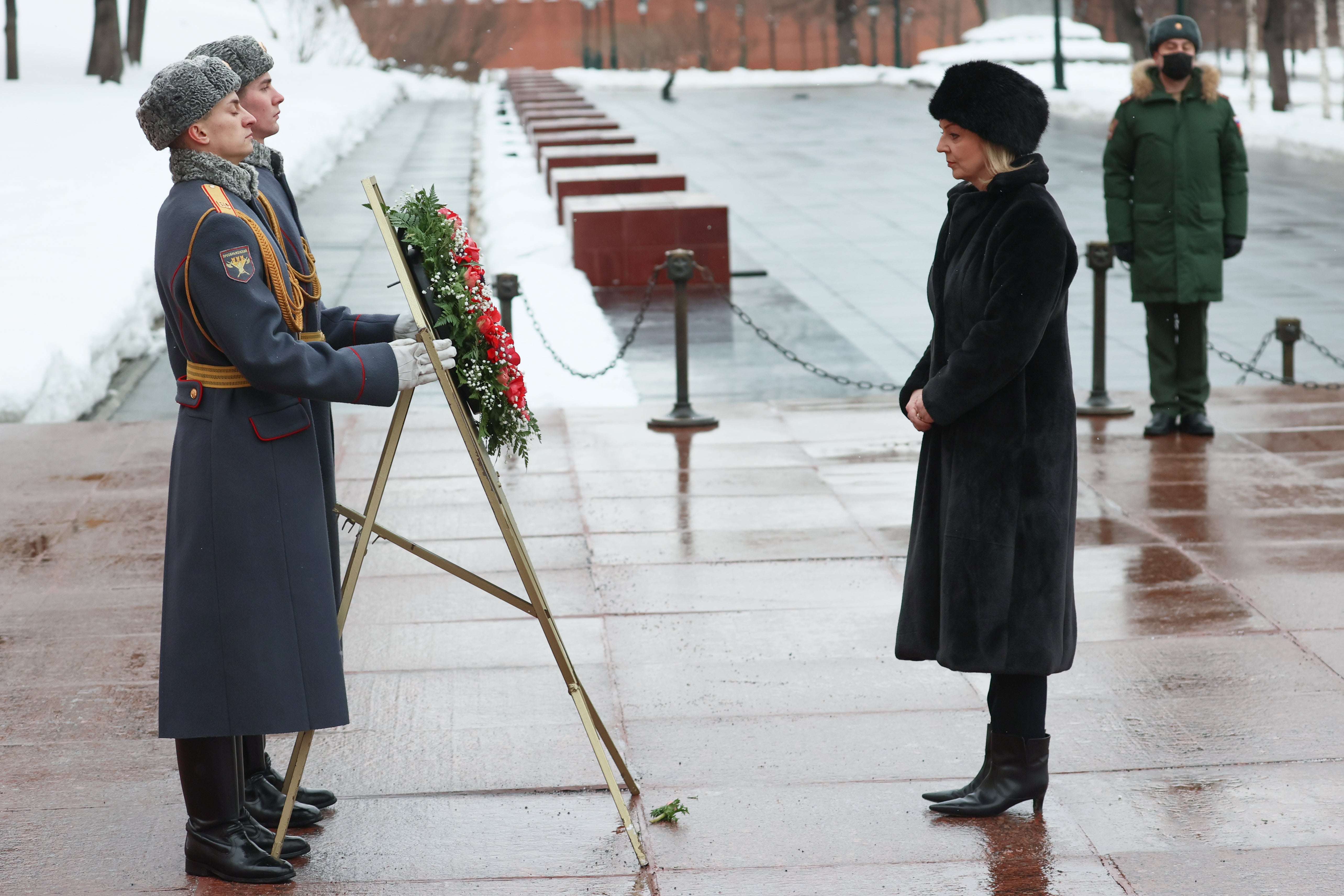Boris Johnson warns Ukraine crisis is Europe’s ‘most dangerous moment’ for decades
PM and foreign secretary embark on diplomatic push with trips to Russia and Poland
Boris Johnson has warned that Europe is entering its “most dangerous moment” amid a standoff with Russia over Ukraine, as both sides stage war games and British and other world leaders embark on a diplomatic push to ease tensions.
Meeting Nato secretary-general Jens Stoltenberg in Brussels, the prime minister said it was possible “that something absolutely disastrous could happen very soon”.
“This is probably the most dangerous moment, I would say, in the course of the next few days, in what is the biggest security crisis that Europe has faced for decades, and we’ve got to get it right,” Mr Johnson said. “And I think that the combination of sanctions and military resolve, plus diplomacy is what is in order.”
His remarks came on a day of a British diplomatic push with Foreign Secretary Liz Truss meeting her Russian counterpart in Moscow before Mr Johnson flies to Poland for talks with the country’s leaders and to meet British troops stationed there.
Ms Truss warned the Kremlin it would face "severe” costs for any invasion of Ukraine and told Mr Lavrov in stark terms that she could not “see any other reason for having 100,000 troops stationed on the border, apart from to threaten Ukraine. And if Russia is serious about diplomacy, they need to remove those troops and desist from the threats”.
The Russian foreign minister responded that Moscow was in favour of diplomacy to resolve the crisis but accused the British side of refusing to listen.
“I’m honestly disappointed that what we have is a conversation between a dumb and a deaf person... Our most detailed explanations fell on unprepared soil,” he said during a joint news conference.
“They say Russia is waiting until the ground freezes like a stone so its tanks can easily cross into Ukrainian territory. I think the ground was like that today with our British colleagues, from which numerous facts that we produced bounced off.”

The UK has announced it will send 1,000 troops to eastern Europe, in a move Defence Secretary Ben Wallace said on Thursday would prove that Nato is "not flaky".
Meanwhile, Sir Keir Starmer, the Labour leader, has restated the party’s “firm and united” support for the Western military alliance, arguing that his predecessor, Jeremy Corbyn, had been “wrong” to be critical of Nato. “It’s part of our values, as relevant today as it’s ever been,” he told The Times.
The comments come amid a backdrop of increasing military tension in the region. Russia will hold planned military exercises in the Black Sea, with six warships having arrived earlier on Thursday near the Crimean peninsula, according to reports.
Russia also began 10 days of military exercises with neighbour Belarus on Thursday.
It is the latest show of strength by Vladimir Putin’s government since a surge of Russian military activity near Ukraine sparked fears of an invasion and led to a tense standoff with European nations and the US. More than 100,000 Russian troops are currently stationed along the border with Ukraine.
The British government is also preparing details of a new range of sanctions which it plans to use against Russia if it invades Ukraine.
Britain’s post-Brexit diplomatic push comes as Mr Johnson is grappling with the worst domestic political crisis of his premiership: a police probe into lockdown parties in Downing Street which has led some lawmakers from his Conservative Party to call for him to resign.
It also follows shuttle diplomacy from French President Emmanuel Macron, who visited Moscow and Kiev earlier this week and, in contrast to US and British leaders, has played down the likelihood of a Russian invasion.
For its part, Ukraine is also beginning previously announced military exercises in response to Russian drills in neighbouring Belarus, lasting 10 days.
Ukraine has not said how many troops will take part.



Join our commenting forum
Join thought-provoking conversations, follow other Independent readers and see their replies
Comments